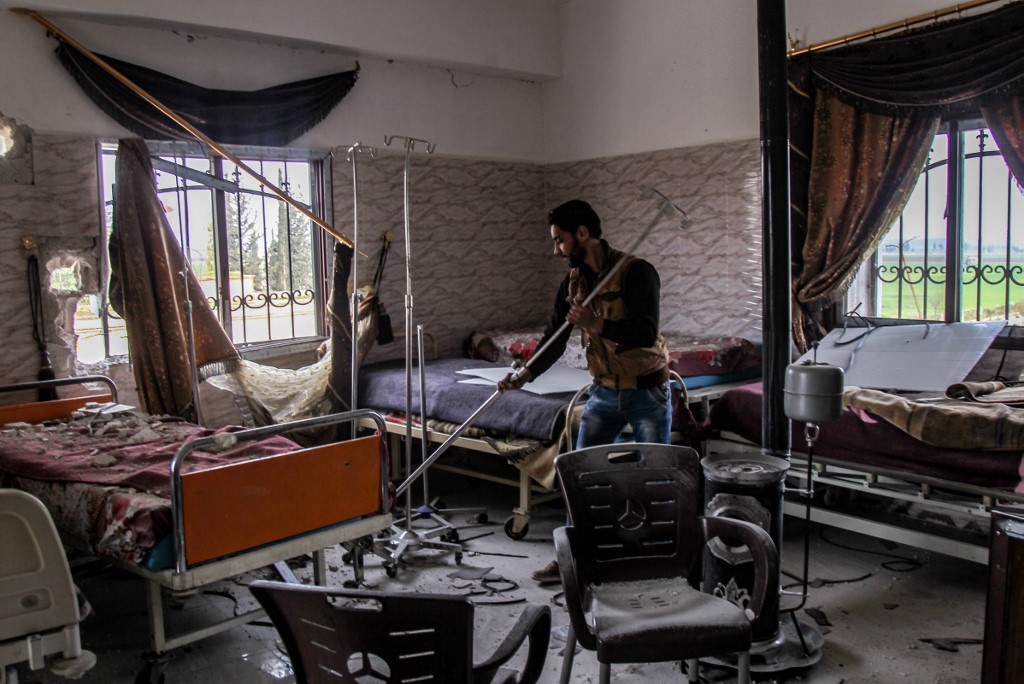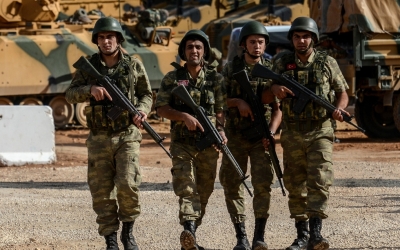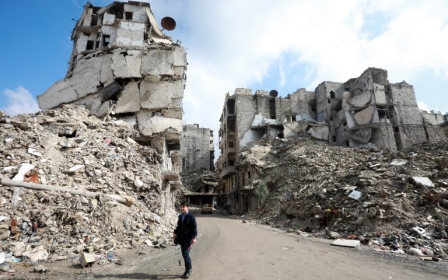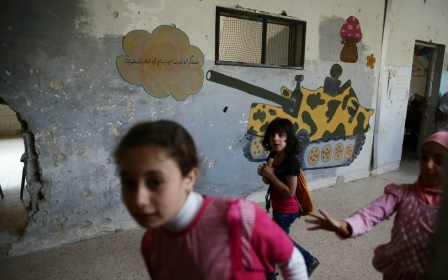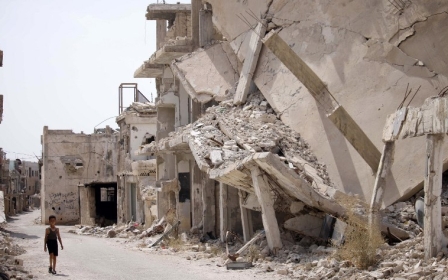Punishing Syrian public servants in former rebel areas will only bring more division
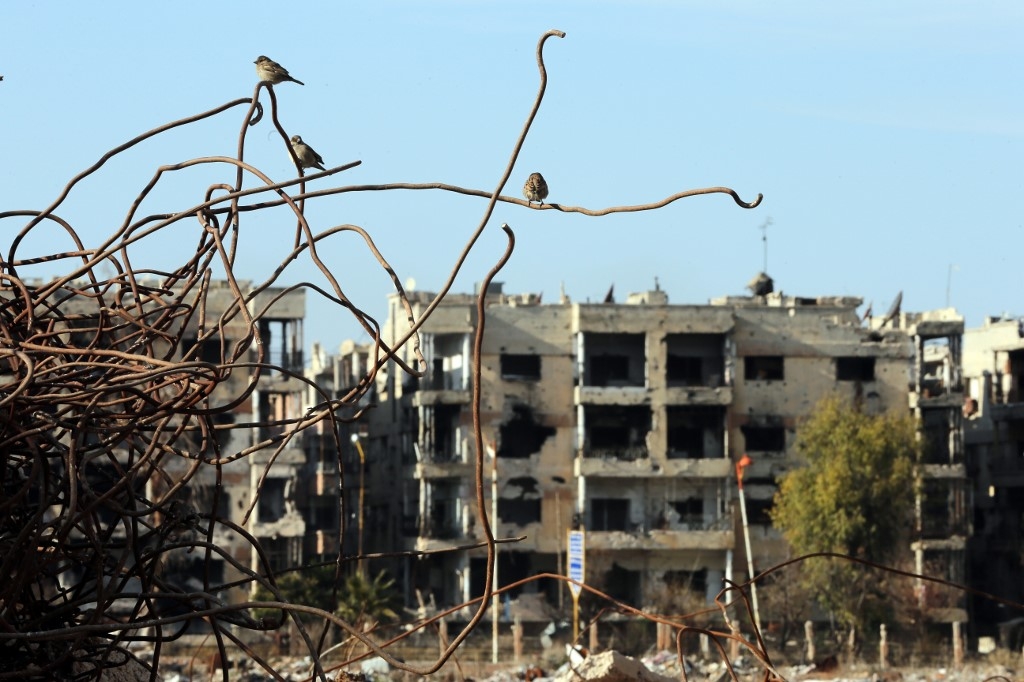
Syrian President Bashar al-Assad's recent, and rare, visit to the frontline of the last remaining opposition held pocket in the country has caused serious concerns, among locals and observers, over an imminent attack on Idlib.
In such a scenario, which has become painfully familiar, the offensive impact will typically be measured in terms of casualties, injuries and displacement. But as the war in other parts of Syria winds down, such conventional measures are no longer enough to capture the challenges facing civilians currently living inside regime-controlled areas.
Instead of guns, the regime is using other punitive tactics to punish civilians who are, or were at some point, considered “out of order”. Among those are hundreds of public servants in former rebel-held areas now retaken by the regime, who are not allowed to get their jobs back.
They have been fired for reasons ranging from "insufficient loyalty" to a simple "failure to report for work". As for the latter, the restrictions that war imposes on movement and safety are, apparently, no excuse – nor is the geographical accident of being in the “wrong” place controlled by the “wrong” side.
Mass dismissals
New MEE newsletter: Jerusalem Dispatch
Sign up to get the latest insights and analysis on Israel-Palestine, alongside Turkey Unpacked and other MEE newsletters
This was not supposed to happen. Under the so-called “reconciliation agreement” – more often referred to as the “surrender deal” – between the regime and the rebels, government workers were assured they would get their jobs back and be entitled to retroactively claim back pay and benefits that were suspended during the conflict.
Whatever the reasons for the mass dismissals, they have left schools, hospitals and other state institutions acutely short-staffed and unable to function properly.
While failure to report for work is grounds for dismissal in peacetime, it is surely excusable when there is a battle raging in the streets
With no reliable statistics available, assessing the scale of the problem is almost impossible. The anecdotal evidence, nevertheless, is overwhelming.
The first reports emerged a year ago from Quneitra, which from 2014 had been controlled by a rebel alliance affiliated with the Free Syrian Army. Sources claimed that more than 50 teachers, 40 medical staff and 300 civil servants were fired soon after the regime recaptured the province.
Around 1,800 teachers and other state employees were reportedly dismissed in southern Homs, and hundreds more in Daraa. Most only learned of their dismissal when they were denied permission to return to work and were referred to the intelligence agency in charge of the area.
Teachers and doctors
The surrender agreement does not cover every region retaken by the regime. But even in those areas where it does – or should – apply, employees feel they have been targeted for dismissal simply because they live in a place that was under rebel control.
Regardless of the many obstacles that might have prevented them from leaving the area, the fact that they remained in towns or cities under rebel control now makes their loyalty questionable in the eyes of the regime. And while failure to report for work is grounds for dismissal in peacetime, it is surely excusable when there is a battle raging in the streets, or if your place of work is under bombardment.
Members of the teaching and medical professions have been particularly hard hit because when official institutions suspended activity as government forces retreated, they were eventually obliged to work with rebel governance bodies and service providers in order to keep schools, hospitals and clinics functioning.
Now, any government worker accused of having “resisted" the regime is summoned to the security services for questioning. Those deemed “innocent” or who are able to bribe their way out, get their jobs back.
Employees also face the possibility of being fined or sentenced to up to three years in prison for “abandoning” their jobs. Dozens of public servants have filed appeals against their dismissal, but it is rare for an appeal to be successful.
Mass firings of public servants in former rebel areas not only hurt those directly concerned, but also the wider population.
For example, most of the medical facilities in Daraa province are heavily damaged or completely destroyed, meaning people must travel long distances to Daraa city or Damascus for medical treatment. But the hospitals and clinics there are already under severe strain, short of hundreds of doctors and nurses.
And of the 95 schools in Quneitra, for instance, only 30 still operate – but under severe staffing shortages, after 200 out of 386 teachers were dismissed. Schools now have to rely on under-qualified temporary staff with no experience.
With few opportunities and ever-deteriorating economic conditions, those without jobs are forced to rely on financial help from relatives living abroad. Some have joined pro-regime forces simply to survive.
Punitive policies toward the inhabitants of former rebel areas can only bring yet more division, more polarisation and more instability for Syria for years to come.
The only way to avoid that outcome is to treat civilians according to their merits and not their political affiliations, and to establish fair and effective state institutions that are accountable to their stakeholders – the citizens of Syria.
The views expressed in this article belong to the author and do not necessarily reflect the editorial policy of Middle East Eye.
Middle East Eye delivers independent and unrivalled coverage and analysis of the Middle East, North Africa and beyond. To learn more about republishing this content and the associated fees, please fill out this form. More about MEE can be found here.



